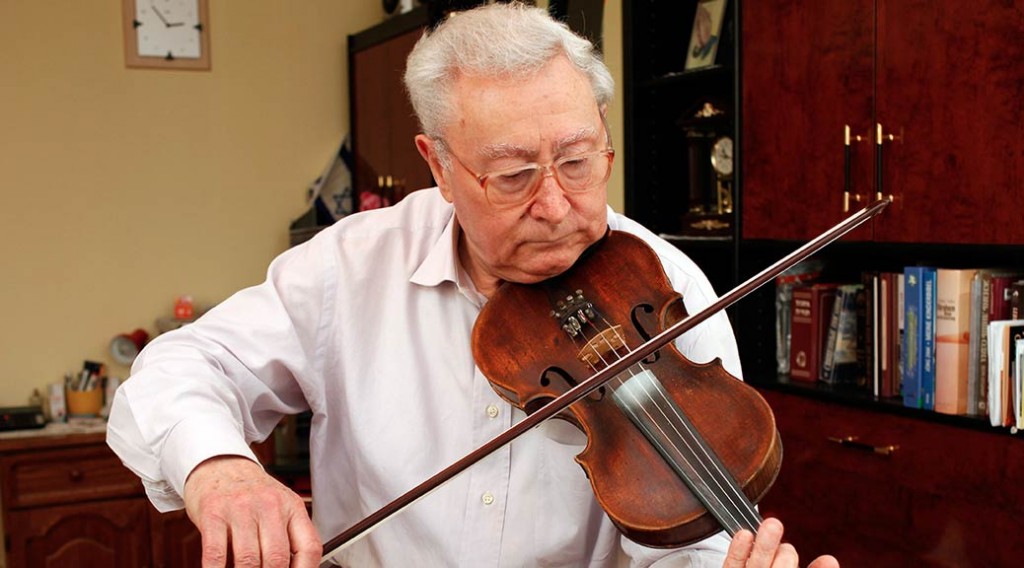In Their Own Words: Survivor Wartime and Late Life Coping Styles By Nancy Isserman, Bea Hollander-Goldfein and S. Nechama Horwitz The coping literature is quite extensive with hundreds of published articles examining coping strategies. More specifically, the field of Holocaust studies has also examined coping. Most studies have looked at coping using quantitative instruments. Some combine…
Tag: mental health
Aging Child Survivors
Aging of Child Holocaust Survivors By Yoram Barak, MD, MHA Introduction Numerous studies focus on the influence of Holocaust experiences on child survivors more than 60 years after the Holocaust. Our own treatment and research group investigated issues as diverse as development of dementia, suicide and psychiatric services used by survivors (Ohanna, Golander, & Barak, 2011;…
Assessing Trauma, Abuse and Loss via Guided Imagery and Music by Amy Clements-Cortés, Ph.D., MusM, MTA, Mt-BC, FAMI Abstract Holocaust survivors often face many psychological and emotional issues such as fear, and intrusive thoughts and images as a result of the traumatic experiences they endured. Guided Imagery and Music is an evidence-based form of psychotherapy…
Music Therapy
Music Therapy To Sever the Silence of a Childhood Holocaust Survivor By Amy Clements-Cortes Ph.D, MusM, MTA Introducing Manya Manya was a 72-year-old female widow, with one son, Peter, married to Belinda. Manya was a childhood survivor of the Holocaust who was hidden during the war and separated from her mother for several years.…
Early Trauma and Resilience
Theory Through the Eyes of Child Survivors of the Holocaust By Svetlana Shklarov MD, Ph.D, RSW Somehow, we children who were meant to die, have lived. We have survived even our survival. And in our various stages of continued hiding many have carved out substantive lives with careers and family. And some have even broken…
Identity and Resilience After Long Silence By Svetlana Shklarov MD, Ph.D, RSW Russian Jews have learned to overcome their fear, know how to make their silence heard as a means of action; theirs is a courage of defiance. … Desperate, you? Your capacity for hope does not date from today. Feeble, you? You have more…
Towards the Integration of Mental Health Services and Social Programs for Holocaust Survivors in New York City By Gary J. Kennedy MD Alessandra Scalmati MD, Ph.D Debra Greenberg MSW, Ph.D Introduction Novel social support programs developed for Holocaust survivors show promise as avenues to reduce disability in late life associated with dementia and other mental…
Aging Child Holocaust Survivors of Sexual Abuse By Carla Lessing LCSW Presented at the Selfhelp Conference in New York on March 29, 2011. The goal of this presentation is that we, the mental health professionals and caretakers of the now elderly victims, will be alert to the possibility that the aging former hidden children, men,…
Practical Experience from the Jewish Community of Zagreb
by Ana Hermanovic, MSW
This article presents strategic and programmatic approaches to serving a diverse survivor community where the common thread is the past experience of personal trauma under the Ustasha and Nazi regime in wartime Croatia. The author emphasizes the fact that assistance is critical for a vulnerable population of “aging citizens in a country where age is identified as one of the highest risk factors in leading to social exclusion and poverty.”
As a physician on a house call, Dr. Reis took a moment to listen to the recollections of a patient of who was a survivor. Drawn to her story, he set up regular meetings to learn more. Their visits together inspired the survivor to document her memories and share details of her life never before revealed. The therapeutic nature of their shared activity led her son to report, “These last ten years have been her best.”

